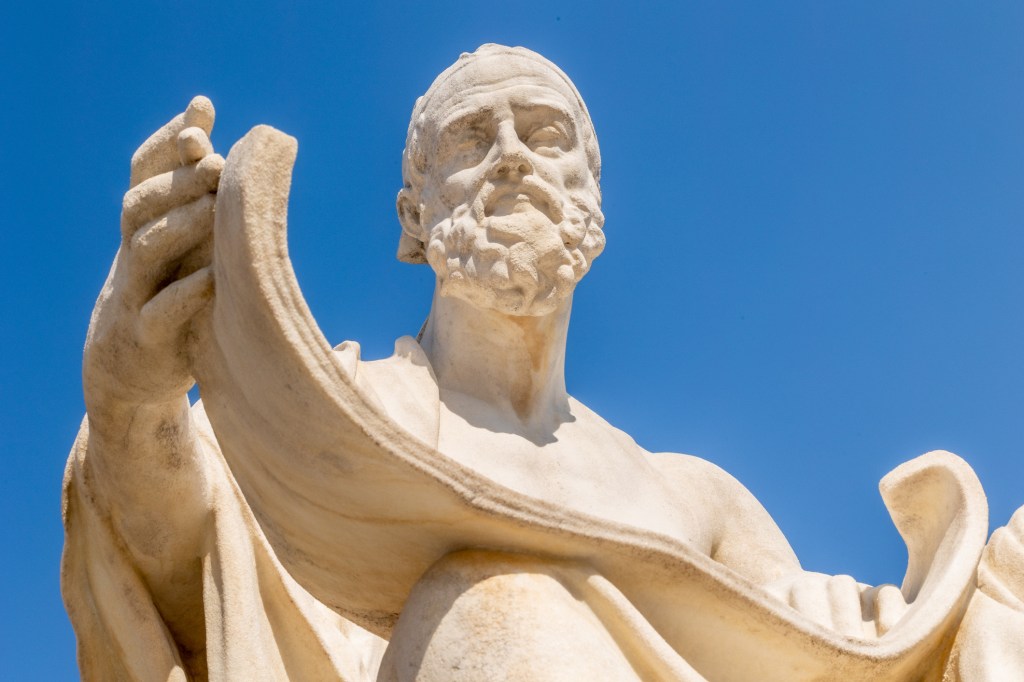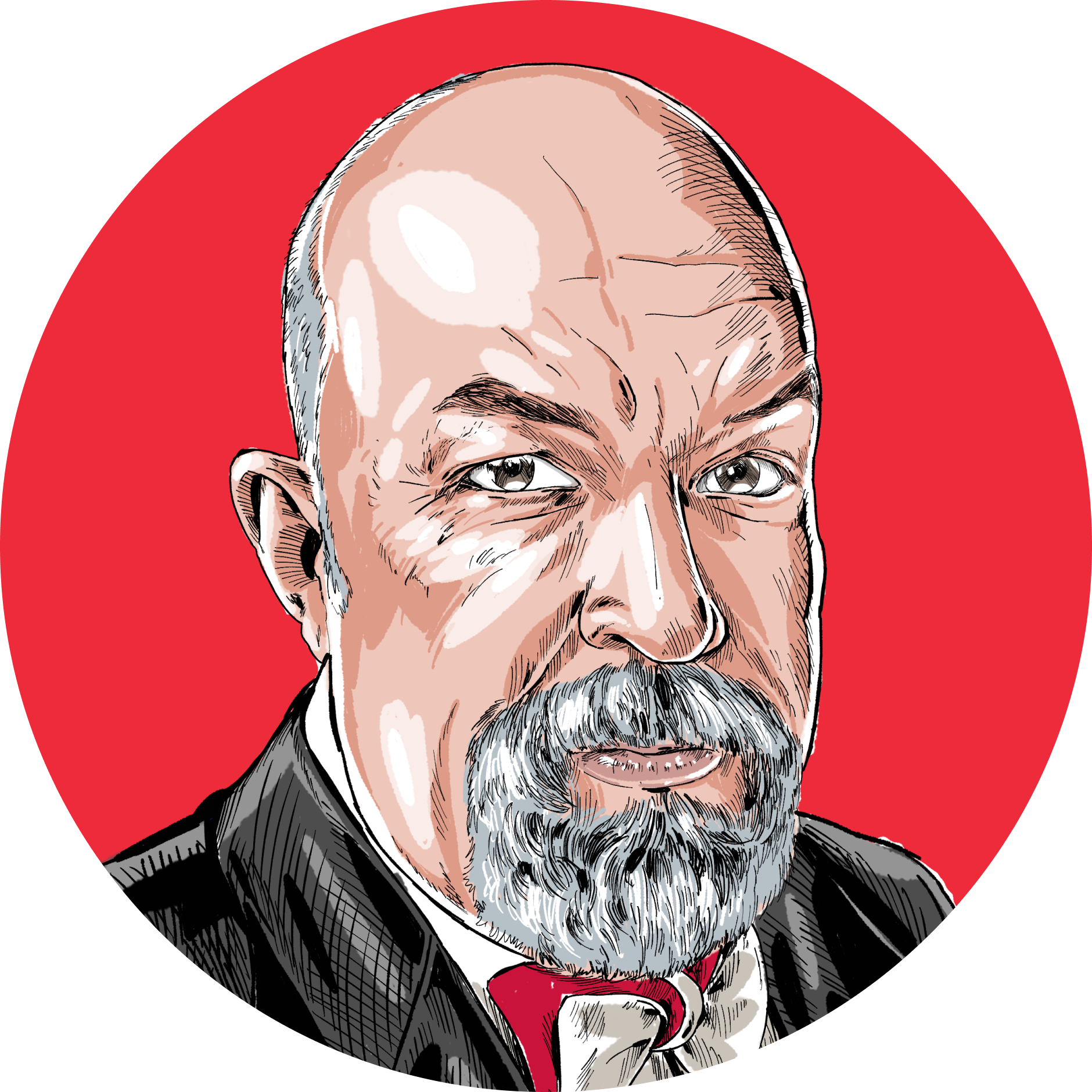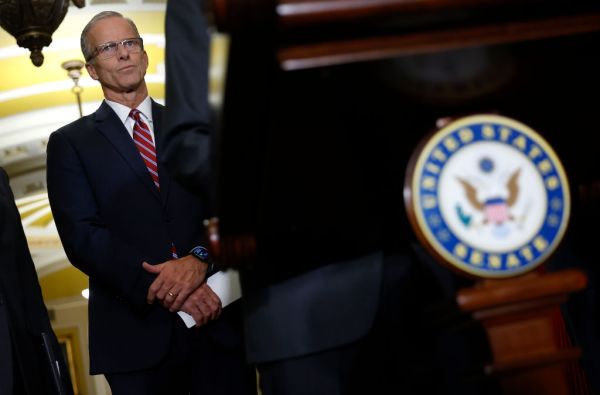A classical liberal arts education is not useless, but it is better to approach such learning as though it were—yes, a good education might make you a better worker or a better citizen, but the purpose of education is not to make you a more useful instrument for the Fortune 500 or for the state, or to make you a tool at all. (Though, goodness knows, our schools have produced some real tools over the years.) Education may be understood as selfish (it is better to be cultivated than to remain ignorant, and education opens one up to pleasures that are not available to the uneducated) or as an act of devotion (God did not make us for complacency and idleness). Yet once you start judging it primarily on the criterion of usefulness, you have lost the essence of education and have descended into mere training. Whenever I hear somebody say that we should care about Mozart because babies made to listen to Mozart in the crib go on to score 25 points higher on the SAT, the bad part of me thinks that person should have his ears cut off, because they are not doing him any good.
(My little one prefers Thomas Tallis, anyway, even if these guys never gave good ol’ English a second thought.)
None of that should be read as an invitation to turn up one’s nose at the practical arts, which are, after all, the things that keep us from starving to death or dying from smallpox or in general suffering under the material conditions of the early 13th century, as much as a troll over at the Daily Wire seem to like the idea of living in 1220. (Presumably, Daily Wire founder Ben Shapiro is slightly less sanguine about the prospects of living, if it were possible, in medieval Europe.) One of the practical arts is politics, which is less intellectually demanding than agriculture and less noble than medicine but which is, unhappily, still difficult to do without entirely. There have been many useful statements of the practical nature of politics, from Bismarck’s famous proverb (“Politics is the art of the possible, the attainable—the art of the next-best”) to the misunderstood and often misrepresented thought of Machiavelli, who argued, long before English had the term “political science,” that students of politics should take a scientific approach to the issue—that the problem of politics is not the pursuit of ideals or idealism but understanding how the world actually works and using that understanding toward practical ends in behalf of one’s own people, prince, or republic. The author of The Prince was, indeed, a republican in his own heart, but he wrote his most famous work with a direction toward monarchy because, in his time and place, and in the context of his project—the political unification of Italy—monarchy was what he had to work with. If you have not read James Burnham’s The Machiavellians: Defenders of Freedom, it is a very illuminating book for our time.
It is interesting to set Burnham and his Machiavellians alongside such contemporary political writers as Patrick Deneen, whose latest book has received a great deal of attention from friends and colleagues of mine such as Jonah Goldberg and Stephanie Slade, or alongside other so-called New Right (really, New New New New Right, since we get a New Right every 15 years or so) figures as Sohrab Ahmari, in part because of how the underlying allegiances have changed—Burnham assumed that conservatives would be “defenders of freedom,” while Deneen and Ahmari and their kind think we have too much freedom—but also because doing so illustrates the fundamental, inescapable problem of that so-called New Right: its lack of intellectual seriousness.
You don’t always get intellectual seriousness from a serious intellectual. Professor Deneen, currently on the faculty of Notre Dame and previously at Princeton and Georgetown, is an actual academic in a milieu that attracts a lot of phony intellectuals such as “Dr.” Sebastian Gorka. As such, he has a lot of interesting things to say about Polybius and Aristotle and even about his intellectual enemies, who include such arch-villains of philosophical history as … Adam Smith. But ask him his favorite question from Lenin—“What is to be done?” and you won’t get much of an answer. As Slade and Goldberg note, Deneen is vague and contradictory when it comes to actual questions of policy, or even questions of practical politics. Polybius? Lots to say. Entitlement reform? Well, you know.
This is the case across most of the so-called New Right. They know who their enemies are, and they know in whose behalf they have appointed themselves to speak—generally without consulting the supposed beneficiaries of their grace—but they don’t know what they want to do. And, to the extent that they do know, it is preposterous and trivial. Sohrab Ahmari, who bounced around between religious and political orientations before settling into being kind of newfangled right-wing Catholic (think William F. Buckley without the charm or the chops) proposes reviving the “blue laws,” which were intended to protect the sanctity of the Sabbath—and which were, it is worth emphasizing here, championed by Puritans who would have burned Sohrab Ahmari at the stake.
No doubt Ahmari would point out that Constantine had Sabbath laws before the Puritans did, but our nation wasn’t founded by Constantine. In fact, the Catholic character of the “integralist” tendency in right-wing politics is—and I write this as a Catholic—positively hilarious. If you believe that in a country in which only a minority of Catholics take Catholic social teaching very seriously—a minority of a minority—the electorate is going to take up Pope John Paul II and his “Theology of the Body” as a ruling political assumption, you are higher than Hunter Biden pretending to be Hunter Thompson.
Put another way: The belief that the basis of a meaningful program of political reform in these United States in 2023 is going to be found in 13th-century Christian practice or in a neo-Puritan regime that would require banning NBC Sunday Night Football on penalty of death, then you are not actually engaged in politics at all. What you are engaged in is eccentricity, a hobby, like building model ships in bottles or trying to prove who really wrote the plays attributed to William Shakespeare. (Answer: William Shakespeare.) I don’t think there necessarily is a lot of harm in it. I probably won’t read the new Deneen book, because I do not think he is intellectually honest and, for that reason, do not judge that he worth the investment of my time, but I do sometimes enjoy reading things along those lines. I recently read Leftism Revisited: From De Sade and Marx to Hitler and Pol Pot by Erik Von Kuehnelt-Leddihn, which is crazy-bananas but also a great read, and, in spite of its being more than three decades old, probably more relevant to contemporary politics than much of what is being written right now. By all means, study Aristotle—but don’t tell me you have magically pulled a 2024 Republican platform out of his Posterior Analytics.
There is a kind of political and intellectual gulf on the so-called New Right: On one end, there are the intellectuals and pseudo-intellectuals, who do not have any real program but who are very, very sure that Polybius would have disapproved of how the Harvard Management Company administers its endowment. (That is one of those issues that these “real Americans” we hear about from time to time apparently are just passionately interested in.) On the other end are the simple will-to-power types, also without much of a real agenda, or at least without a real agenda that extends more than 15 minutes into the future. These are the J. D. Vances of the world, the Steve Bannons and the Marjorie Taylor Greenes and Andrew Anglins, whose program is only this:
Many of us have student loans on degrees that are worthless.
Many of us fought in wars for Jews.
Many of us have struggled with substance abuse.
Many of us are out of shape.
We feel emasculated.
Many of us feel we have never had power.
We crave power.
We lust after power. We want to be part of a group, which will give us power. A group that will confirm our worth as men.
We do not have identities.
We want identities.
We want to be productive. All men want to be productive. We want to build things. We want to build, we want to create, we want to be needed.
We have problems with women. All of us do. We lie to each other and claim that we don’t.
We are a generation of throwaways, which (((those who write history before it happens))) have slated to be the last generation of Heterosexual White Men.
We are angry.
There is an atavistic rage in us, deep in us, that is ready to boil over.
There is a craving to return to an age of violence.
We want a war.
That’s from Anglin. Take out the antisemitic stuff and tell me which part you couldn’t read in the New Right outlet of your choice. Take out the antisemitic stuff (or maybe don’t take it out) and (maybe) the three-cheers-for-violence stuff, and tell me which part you couldn’t find a Fox News mouth-hole to make excuses for—or a writer for one of the more excitable conservative magazines, for that matter.
And, really, what is to be done? What are we going to do? Tell the socially maladjusted incels of Rumble to study Polybius?
Professor Deneen et al. would tell you that their beef is with liberalism. In fact, their beef is with modernity. But, in either case, their indictments are like complaining about the weather. This is the world we live in and, if your political program entails living in a different world, then it isn’t really politics. It isn’t political philosophy, either. It is, by the most charitable account, literature, albeit a bargain-basement genre of literature: right-wing Catholic fan-fic. And if the talk-radio callers and the comments-section rage-monkeys are anything to go by, what these people need isn’t a political program, but therapy. Indeed, there is a reason so much of our modern political discourse, which isn’t really political discourse, has the feel of a group-therapy session.
During the runup to the 2016 presidential election—and, especially, in the aftermath of that election—we read a great deal about the rage and alienation of downwardly mobile, white, exurban-to-rural voters, who saw in Donald Trump a hammer with which to smash institutions they hate, or at least a nettle with which to irritate people they hate. What was never adequately explained—or even seriously considered, at least in public—was why the concerns and demands of that particular demographic subset should play so prominent a role in our politics. Why not be extra solicitous, when it comes to economic policy, toward the economically vibrant places and the most productive industries? Why should national policy be oriented toward the declining parts of the country, the moribund firms, the stagnant industries? Deneen argues that we should have elites who are more aligned with “the many”—meaning the people he thinks should count more politically—but nobody in that camp ever really says what they think that should mean. Donald Trump claimed to speak for the poor gormless benighted denizens of middle America—and then proceeded to absolutely hose many of the most important industries in rural America, e.g., absolutely screwing soybean farmers in the course of accomplishing something—remind me: What did he accomplish?—vis-à-vis China. J. D. Vance was going to make a big splash helping his former patrons in the venture-capital world connect with economically ailing parts of Ohio. That hasn’t borne much fruit, and neither did Vance’s attempt at nonprofit work. All that big talk, and what did he do? He took the same job Sherrod Brown has.
¡Viva la revolución! I guess.
(NB: All of this progressive talk about how “blue states subsidize red states” is economically illiterate, intellectually dishonest, and morally kind of gross. It also misstates the real politics: Mississippi (which had precisely one Republican governor in the whole of the 20th century and was run by Democrats until 2010, following 131 years of interrupted Democratic control of the state legislature, but never mind that for now, it’s a “red state”) and Oregon have exactly the same poverty rate among non-Hispanic whites, but Mississippi has a much higher overall poverty rate, mostly driven by the fact that Mississippi is 38 percent African-American, while Oregon has fewer black people than a Bernie Sanders rally, with a smaller African-American population share than Alaska or West Virginia. African-Americans have a higher poverty rate than whites basically everywhere in the United States. Hispanics, too. Do you really want to make the argument that “red states” are horrible because there are too many poor people—and, in particular, too many poor black and Hispanic people, and probably too many old people—living in them? And do you think that Mississippi’s recent Electoral College votes are driven by the preferences of the poor black voters in that state? Don’t talk to me about “red states” and “blue states”—talk to me about ZIP codes.)
What we have is angry populists looking for power or at least paychecks, and similarly angry academic eggheads offering no kind of intellectual leadership to the movement they purport to be championing, partly because they don’t have a real product to sell, and partly because there wouldn’t be any market for such a product if they did. And so you end up with Victor Davis Hanson, who is happy to explain to you why this moment in our politics—or any other episode that comes to mind—is reminiscent of the Peloponnesian War, writing for the same outlet as Julie Kelly, who claims January 6 was a hoax staged with the aid of “crisis actors.” The Thucydides guy and the Q-Anon kooks, all singing from the same hymnal, all doing the same hokey-pokey, all feeding at the same trough, at least until the Mercer money runs out.
But, you know, Polybius.
At the Trump rallies, you can hear the real chant, if you have the right kind of ears: “We want power!” Okay, so you want power, what for? To make sure movie theaters are closed on Sundays? I would have written, “to make America one vast Chick-fil-A,” but, as I understand it, Chick-fil-A is now too “woke” for the right kind of people. Charlie Kirk apparently is going through his fridge trying to figure out whether his ketchup is “woke.” Totally normal people in totally normal times, these.
The thing about eccentrics is, they aren’t all interesting. Some of them are just hideously tedious.
And Furthermore . . .
To repeat: I haven’t read the Deneen book and don’t expect to. But as I know from Stephanie Slade’s review, Deneen writes that he would prefer a system in which conservative views are “the price of admission to elite status itself.” For a Polybius man—though maybe not a thoroughgoing Polybius man—Roman precedent is always of interest. Cicero, a provincial who wasn’t a proper Roman, became the most conventional of Romans, the most Roman of Romans, among the most conservative and orthodox. Conservatism may not have been a condition to admission to the Roman elite for everybody, but it surely was a condition for such a man as Cicero, a novus homo—a “new man,” not a man from a family of senators and consuls. (There was a time when mere money wasn’t enough.) Cicero’s ally, Cato the Younger, had a reputation as being no friend to the common man but was, technically, a pleb. He was famously orthodox in religious matters—but also adopted Stoicism, which his famous ancestor, Cato the Elder, had opposed as a noxious foreign cult. (The Romans used to talk about the Greeks the way conservatives circa 2001 talked about the French—as weaklings who wouldn’t take their own side in a fight and, in the Roman indictment, “effeminate.”) Julius Caesar, the great populist, was himself a patrician from an ancient lineage. Everything old is new: Geert Wilders, the Dutch rightist of partly Indonesian ancestry, bleaches and dyes his hair to look more classically Dutch. Donald Trump was—not long ago!—a peddler of pride-flag merchandise who made cameos in porn films. People aren’t always what they seem, or what life seems to have fitted them to be. And they certainly aren’t always what they claim to be.
Economics for English Majors
On the Oren Cass vs. Scott Winship throwdown, the numbers seem pretty clear to be on Winship’s side. But, by all means, dig in yourself and see what you can make of it.
Or, to take another approach, ask yourself: “Who you gonna believe? Angry populists or your lyin’ eyes?”
Ain’t nobody you know wants a 1980s standard of living—much less a standard of living from the 1950s, the purported postwar golden age of the American worker. I know this because I know you can have that standard of living, right now, if you want it—cheap. But nobody does that. You can go get yourself a house more or less identical to the one my middle-class grandparents lived in from the 1950s through the 1980s, only a few miles away from the company town where they actually lived, for less than the price of a Toyota GR Corolla. Yeah, it needs some work—so did a lot of people’s houses in that era. A car built to 1982 specs would be pretty cheap today—if you could legally sell it, which you couldn’t. Adjusted for inflation, you could almost buy two Mac Studios for what one Atari 800 personal computer cost when it first hit the market in 1981—and that computer didn’t have the computing power of a modern smartwatch.
People were poor in the 1950s—and radically richer than they had been only a few decades before. All this wealth we have is really, really new. As Brad DeLong put it: “In what matters most, in the warp and woof of everyday life, our counterparts in the industrial core of the world economy around 1900 still had more in common in their styles of life with their predecessors of 1600 or 1700 than with us today.”
Of course people compete for material goods. One of the interesting features of the rich world in the past few decades is that everybody has started to rediscover the fact that while businesses compete for consumers, consumers compete with one another, too. (Watching people learn can be a hoot.) For practically every product or experience, there is a super-expensive version of it: That’s because we live in a connected world with a lot of rich people in it. (I like Momofuku, but with memories of collegiate poverty still very much with me, it took some time to come around to $21 ramen.) There’s a reason “limited edition” stuff has got so big in recent years. There’s a reason everybody is talking about how hard life is in our time while Rolex dealers can’t keep product in stock.
But that reason isn’t really what you might think: When a society reaches a certain level of raw material prosperity, people’s energy shifts away from the competition for necessities or even quotidian luxuries and toward competition for status. Nobody in these United States is murdering anybody over a pair of sneakers because his feet are cold. Nobody is going to commit an armed robbery and take a watch because he needs to know what time it is.
I’ve been meaning to dig into this for a while, and I promise I will at some point, but, here’s the thing: What has changed in the past few decades isn’t that it sucks to be poor—it has always sucked to be poor—or that the middle class has grown poorer—it hasn’t—but that the lives of the very, very wealthy—your Silicon Valley billionaire types—have become radically different from those of ordinary people, even ordinary rich people. Do you know what Howard Hughes drove? He drove a Buick—a really nice, tricked-out, customized Buick. But a Buick nonetheless. Jeff Bezos has a spaceship and a yacht that would have made Thurston Howell III himself retch at the vulgar display of wealth.
You’ll notice that our self-appointed class-war generals do not talk very much about the poor—they talk almost exclusively about the rich, the “allah-garks” of Bernie Sanders’s imbecilic rhetoric, and how unfair it is that they are so rich. They would like you to believe that the poor are poor because the rich are rich—and, more important, that you splendidly numerous middle-class voters are unhappy because the rich are rich. The rich may be powerful but, as voters, they are not splendidly numerous. The class-war guys aren’t counting money—they are counting votes. That “1-percent” stuff is evil, but it is clever.
I’m not an economist, and I don’t pretend to have all the solutions to making our already wondrously prosperous country even more prosperous. But I do have a sneaking suspicion that eating the seed corn is not a great long-term strategy.
Words about Words
Joe Biden, as everybody knows, talks literal nonsense. Whoever writes his Twitter does, too. Example: “Juneteenth as a federal holiday is meant to breathe new life into the essence of America.” This is an example of a sentence that is grammatical in form but nonsensical in content. Noam Chomsky, the Paul Krugman of linguistics (a giant in his academic field, an idjit at politics), composed the textbook example: “Colorless green ideas sleep furiously.” (If you have a French textbook, it may be: “Le silence vertébral indispose la voile licite.”) Every word in the sentence means something, and the sentence has the form of a grammatical English sentence, but it is nonsense. Biden’s nonsense is nonsense with a bias toward that which superficially wounds uplifting—“new life” and “essence”—but it is nonsense nonetheless.
Literally meaningless sentences are common enough in political rhetoric, and there is much political rhetoric that doesn’t seem to mean very much if you think about it too hard. Consider the ubiquitous cri de cœur: “We’re gonna take our country back!” From whom? The United States of America is governed by—for our sins—Americans. If there is a thought attached to that sentence, it is a thought that few people would be willing to speak aloud: “The United States should be, effectively, a single-party state, because, in our view, the government is not legitimate if the other party is in power.” Taking their country back is what the Indians did in 1947. How strange that so many of the people who shout “We’re gonna take our country back!” have so little sympathy for people who are actually trying to do that—the Ukrainians, for example.
One of the “tricks”—and it isn’t really a trick—I used to share with my writing students is to read a sentence aloud and think of the literal meaning of the sentence and each of its constituent parts. You’d be amazed how that little bit of mental focus improves the prose of struggling writers.
In Further Wordiness . . .
A reader writes in to request that I pronounce anathema upon the use of “incredible!” as a general-purpose substitute for “good” or “admirable.” Incredible literally means unbelievable, which is similarly abused, but, since we are focusing here on literality, what unbelievable means is having the quality of being difficult or impossible to believe. From where I am sitting, the view is very good. Seriously, check it out:

But the view is not incredible. Such a place does exist: It’s right there on the Evian label.
We are, as the photo suggests, currently on vacation in Montreux, a lovely little town in Switzerland that next week will host its famous jazz festival—which features some jazz but for the masses offers up Bob Dylan, Lionel Richie, and Lil Nas X, among others, this year. I won’t be here for that, for the same reason that I love New Orleans every night of the year except Mardi Gras. I joked that I was bringing my 1-year-old to Switzerland to introduce him to some proper bankers, and, as it turns out, there are three conventions for bankers and financial planners going on at almost the same time. I like it when a nation lives up to its stereotypes. The trains here really are terrific.
Lil Nas X, I learn, two years ago achieved a milestone: His inescapable “Old Town Road” became the highest-certified RIAA single ever, the equivalent of going platinum 14 times over. Goodness knows how many copies it has sold since then. One of the things I love about capitalism is that you only have to be good at one thing—you only have to have one big idea, or even one song—to make a real fortune. At one point, “Old Town Road” was (by one estimate) earning Lil Nas X $1 million a month. And it’s a pretty catchy song, too.
Impressive? Absolutely.
Not incredible.
Elsewhere
You can buy my most recent book, Big White Ghetto, here.
You can buy my other books here.
You can see my New York Post columns here.
In Closing
Switzerland, as I have written many times before, is a well-governed country, one whose model of government begins with an important step: Start with a country full of Swiss people. Culture matters, and bigly. That being said, even the Swiss can’t seem to make a modern airport work very well. I’ll have a funny story about that for later. The good news is that my bags did eventually arrive and, unlike my friend Jonah Goldberg, I have pants.









Please note that we at The Dispatch hold ourselves, our work, and our commenters to a higher standard than other places on the internet. We welcome comments that foster genuine debate or discussion—including comments critical of us or our work—but responses that include ad hominem attacks on fellow Dispatch members or are intended to stoke fear and anger may be moderated.
You are currently using a limited time guest pass and do not have access to commenting. Consider subscribing to join the conversation.
With your membership, you only have the ability to comment on The Morning Dispatch articles. Consider upgrading to join the conversation everywhere.